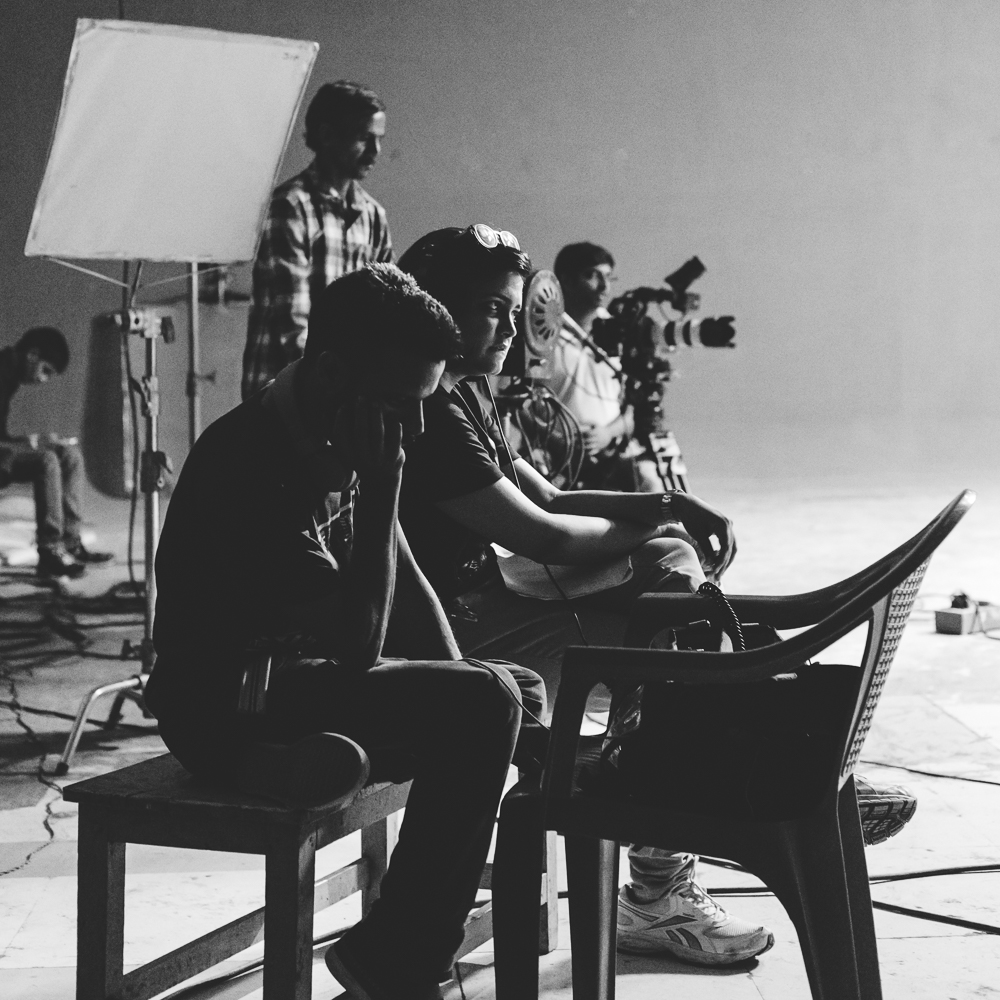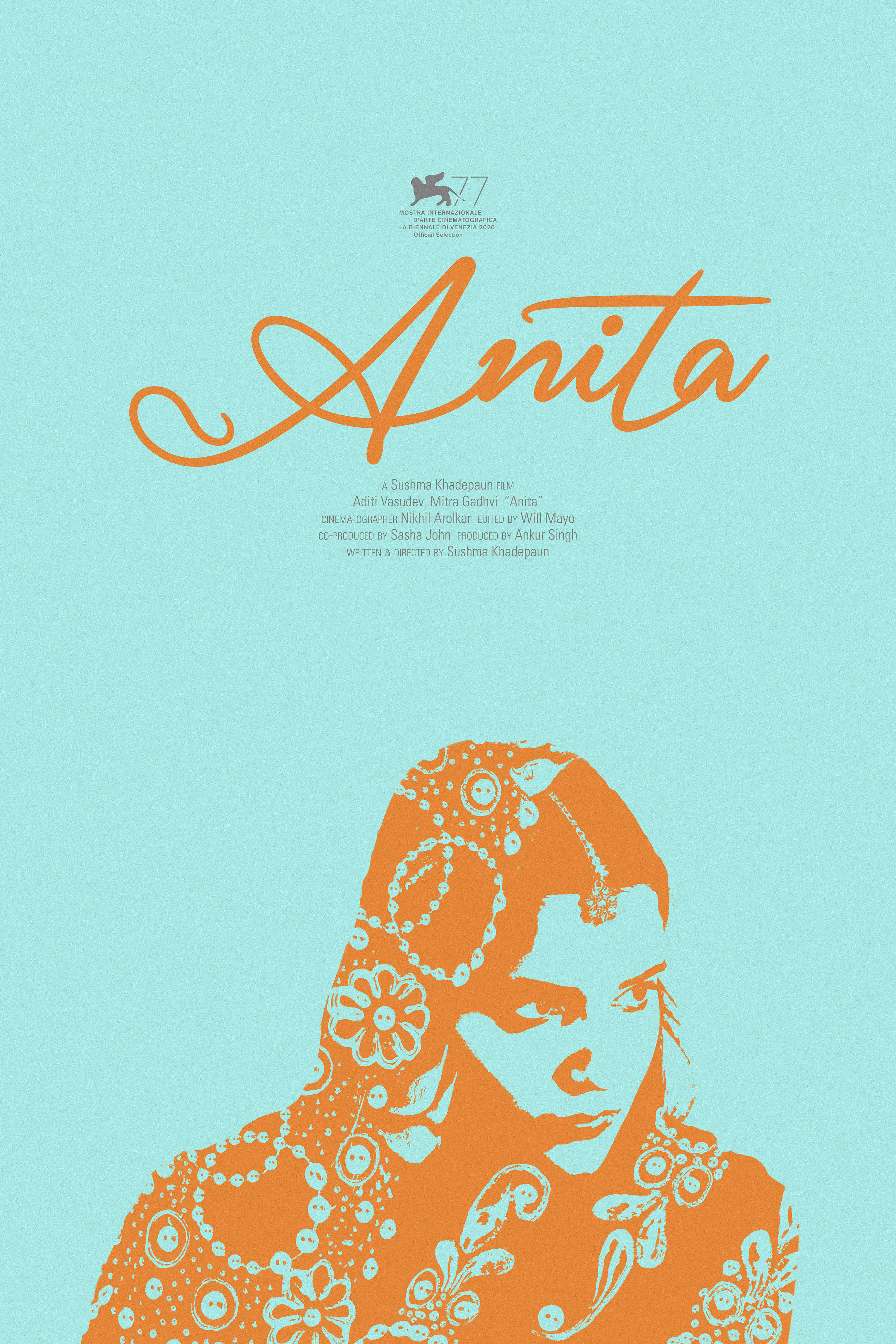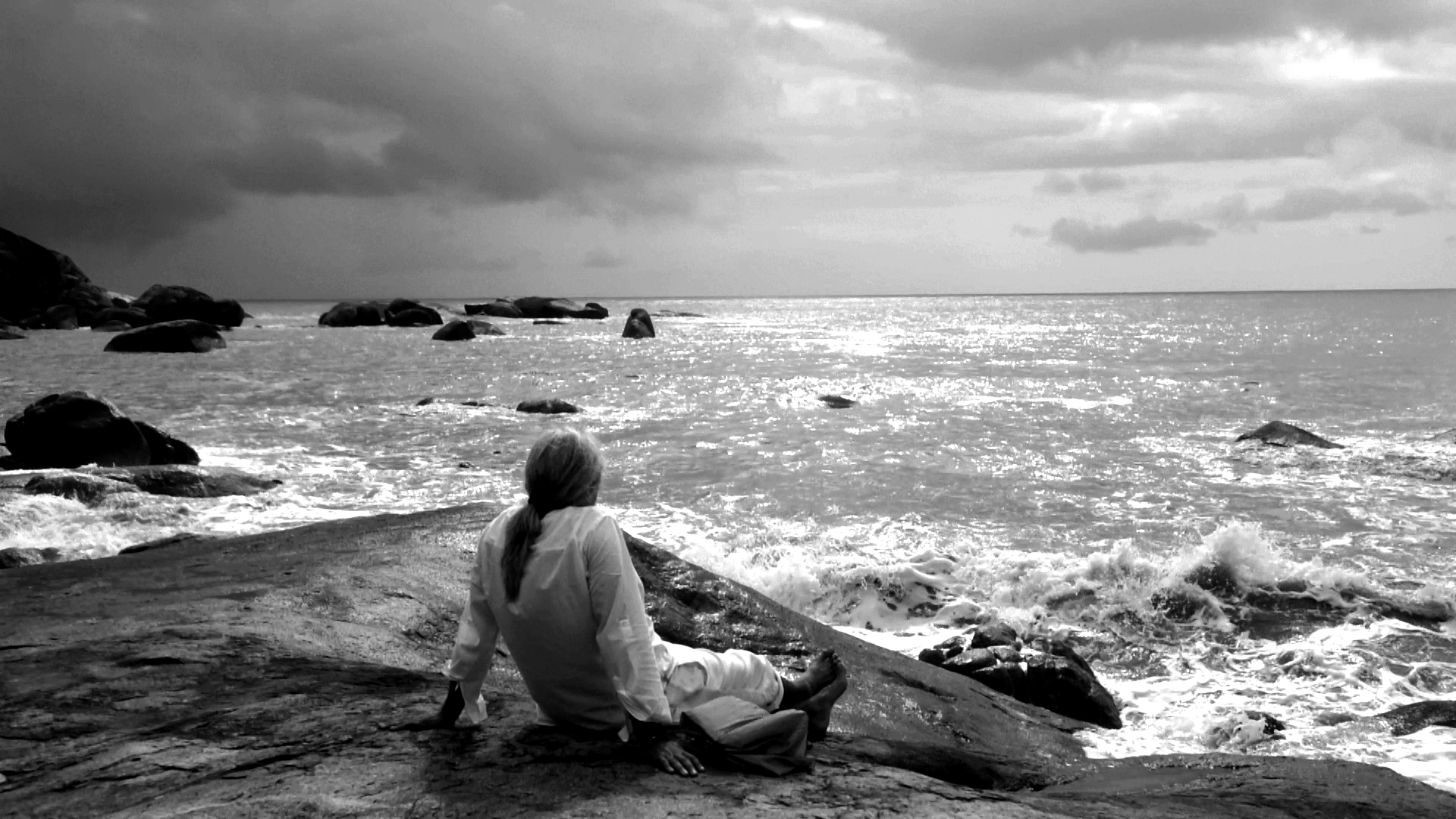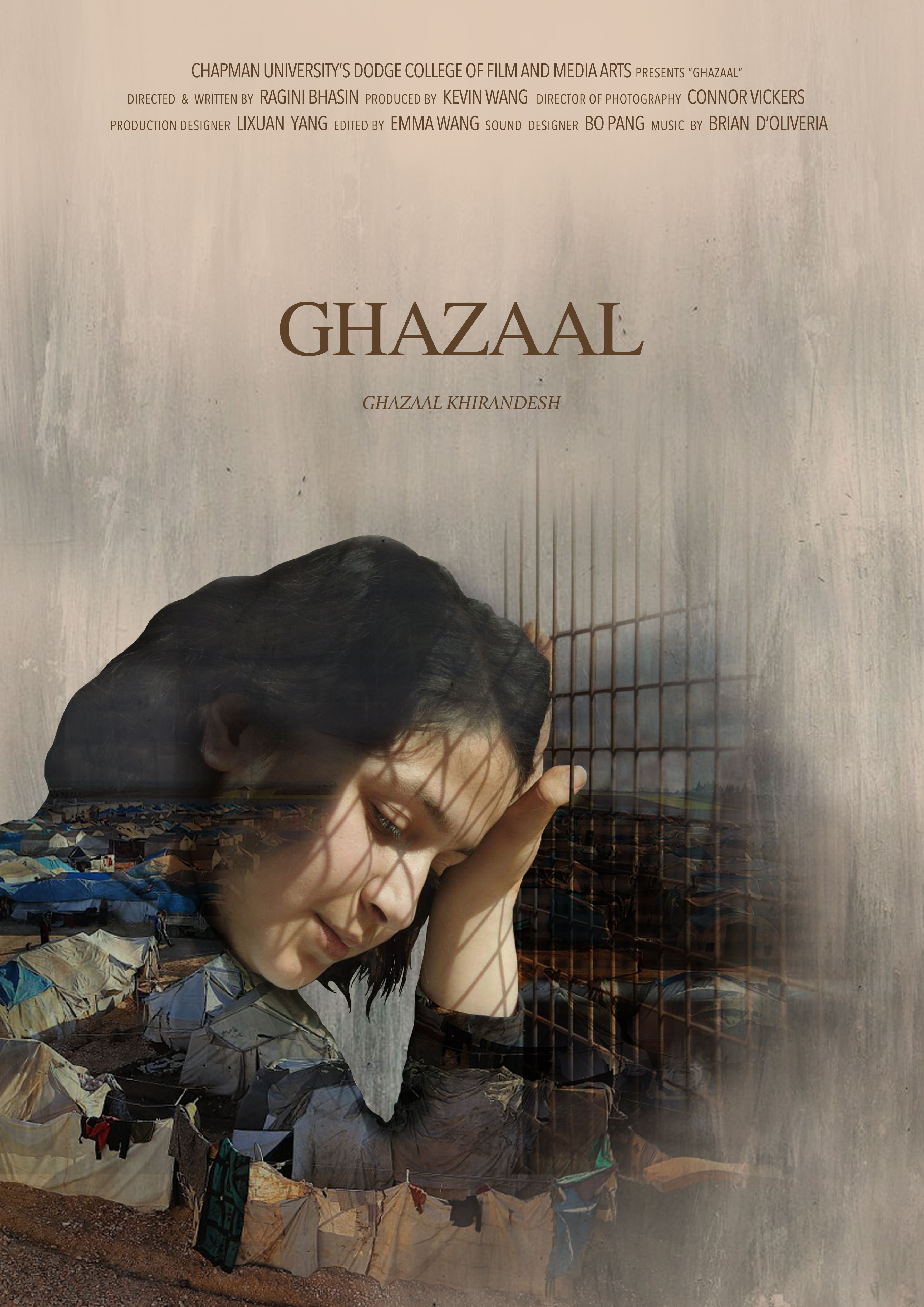By Prerana Manker
(Photo credit: Hersh Acharya)
Human beings are driven by their impulses. On an impulse, you say yes to the girl/boy who confesses to you in the school corridor, you take a trip to Goa over the weekend with your friends, you buy a really expensive phone. You don’t necessarily start an independent outfit of your own. It was the single most impulsive decision of our lives.
Filmmaking as a profession is rewarding in the sense that you get to create something from just an idea and immortalize it. The subject matter of course leaves much to be desired but the process itself is extremely fulfilling. This explains the major shoot hangovers that most people experience after having completed a really long schedule. You’re trapped like Alice on the set. This is your rabbit hole replete with mad-hatters and queens gunning for your beheading but in the end they’re all essential to the existence of this space.
Thus the desire to film again and again, is to recreate this feeling, this sense of otherworldliness that occurs only when the lights come on and the camera starts to hum. Just for that one moment of feeling like this was all worth the while, the amount of struggle, pain and decision-making that takes place is nothing short of legendary.
Snap back to reality: what started as a desire to be self-sufficient and self-reliant became an exercise in self-discovery and self-inflicted misery.
The beauty of being an independent filmmaker relies heavily on the ‘less is more’ philosophy. So as you learn the ropes on the job, you also learn that not only is time=money but people=money. In the effort of doing as much as you can in as little as possible, the one luxury you can’t have is a truckload of people. They’ll be like the enormous lights occupying the set just for the mental well-being of a cinematographer. Within reach but not usable. So what do you do? You double up.
As I started out, I barely knew enough about editing software, cameras, lenses, basically all technical aspects of filmmaking. As we began our journey of self-actualization, I started getting more and more involved in handling those aspects. I’ve always had a keen interest in photography so handling the camera was exciting and nerve-racking. But the most exciting learning curve for me was learning to edit a piece together. It is akin to sewing an outfit fit for the red-carpet.
Editing is not something you learn only technically. There’s an art to it. It involves a basic sense of rhythm, a penchant for acknowledging the pace of the subject matter and giving the visuals their due. I cannot say that I’ve mastered it but I love the process and the possibility of a variety of outcomes thanks to it.
I’ve primarily edited non-fiction and documentary styled films since the beginning so Txdrmy – a web-series created by filmmaker Srinivas Sunderrajan (we started Enter Guerrilla Films together along with a few friends) for Humara Movies – was a first for me.
It was a first time challenge for us all. Producing fiction without my usual producer, 3 days on a closed set in Madh Island, 5 short films – the list is endless. Since it was an experiment to begin with, we had a tight budget and an even tighter crew but we managed to pull it off despite naysayers and partypoopers on the set.
Being involved on the administrative front and then switching gears to make something coherent seemed like an easy task at first. Editing the series along with the director was illuminating to say the least. But as you all know, no first cut gets approved. Despite the long drawn job and painstaking effort involved, it was an extremely emotionally rewarding experience, because anything is possible if you just set your mind to it and do it with the intention of just doing it, not just to reap rewards. I’ve never been more stress-free on a set before and that says a lot about me.
You’ll usually find me scraping away at the skin of my thumbs in a dark corner on the set, wondering where the time is going and how the shots taken are not directly proportionate to the hours just wasting away. Or scowling at the pace of the people involved, just itching to take their place to move mountains even if it contributes to an inch forward. Most people are wary of me on set and have personally come and told me that they’re scared of me throwing a chair at them for not doing the job right. If only that fear could guarantee progress.
In the end, my job is to ensure that the director gets what he/she wants and there is no creative compromise.
On the sets of of the music video “Banjaara” for Paradigm Shift I was a bundle of nerves. We had 5 setups for the band members, 50-member crew, 2 days to shoot and a location that was expensive AF for lack of emphasis. I have never been more unsure about finishing a shoot on time despite having so many people at hand. The set was also blessed by the ever omnipresent labour union that had a bone to pick with my line producer.
Amidst all this we were running out of time to finish the final piece that was essential for the concept of the video. A massive 5-feet Pyramid with three sides made out of infinity mirrors. In the midst of making this gigantic monolith of “2001 A Space Odyssey” proportions, in a tragic mishap, one side crashes to the ground, glass pieces shattering, like my heart, on the floor and into the foot of the creator. I’m mortified.
I wondered how we were ever going to recover from this. First things first, the poor guy was sent to the hospital to get treated. Second, I had no choice but to take over. I had to get another piece made and ensure that the damned thing was made in time to be shot. Only because of its sheer size and shortage of time, we weren’t able to utilise it the way we’d expected to. But I didn’t have the time to sit and mope. I saved that for later. The guys foot healed without any stitches thankfully. My heart still bleeds.
I’ve spent more time wondering what if we had a little more money, more people, more equipment; just a little more of everything than actually savouring fleeting moments of euphoria.
For the same music video, we had to shoot ink drops as backgrounds for the CG. The crew was only 8 people and all we had to do was shoot ink falling beautifully in slow motion in a huge fish tank filled with water. The amount of fun I had in this small, minimal setup made up for all my grievances on the two-day shoot. I was controlling the ink. I was enjoying it while it fell voluminously like dark clouds spreading in the clear water. I was creating dementors in my own space.
While some experiences leave you feeling inadequate and questioning every move of yours, others make you feel invincible.
I still remember shooting our first feature “Greater Elephant” on the streets of Pune. We were barely a crew of 12 people. We were young and stupid and seriously impatient. But we wanted to do things our way. On one of the night shoots, our novice cinematographer was experiencing severe backache due to holding the camera rig for too long. We were shooting a dialogue heavy scene and it was taking longer than usual to can the shots. To save time, I offered to hold the camera for just one shot where there wasn’t much movement involved. I still remember my shoulders quivering while trying to balance the rig in my hand. But they steadied as soon as the light guys around me offered to press the record button. The shot is there in the film.
Honestly I’m in no position to advise anyone about how they should go about doing their own thing because what worked for me may not work for them. All I can actually talk about is the things that truly matter universally:
- You cannot control everything. Being in control is only an illusion. Even if you plan for disasters they may not be the same disasters you were thinking of. So it’s best to plan and be flexible enough not to crash and burn at the site of a slight detour.
- Learn to prioritize. Separate the wants from the needs and go about doing your planning. You cannot insist on a 5-course meal when you can only afford 2 courses. Which brings me to the famous saying: “Penny wise pound foolish.” Spending on stupid things when you’d rather be spending on the bigger picture is a mistake many make. This is why priorities are important. You prioritize when it comes to having a good crew and that means a technically sound crew. Followed by having the right kind of equipment for your subject matter. Filmmaking is an audio-visual medium and if you’re scrimping on one aspect, the other is bound to be dragged down to hell along with it.
- This also applies to the people you invest in. You cannot survive in this world alone. Filmmaking is not a one-man process. There is a reason that credit list comes at the end of every film, even though we shamelessly ignore it while walking out of the theatre, stomping over the uneaten popcorn and trashing our unfinished unsavoury soda glasses. It’s a team effort. A good director gets his accolades because his supporting cast gives him unconditional backing. So even if you want to do everything, there will be someone out there better equipped than you to do that job.
- Last but not the least, make the effort to make something you’ll be proud of. Something that you won’t mind putting up on your Facebook or Vimeo accounts instead of slyly stashing them away in private links only for shady perusals behind plastic doors. The endeavour should be to put every single thing that you work on out there because you know it deserves to be seen by the world.
I’ve multitasked throughout my so-called professional life and it has helped me personally as well. It changed my perspective towards many issues and made me more grateful for the people I have around me that support me. All it takes is being clued in and considerate of your surroundings. That’s how you keep the film rolling.








Leave A Comment
You must be logged in to post a comment.